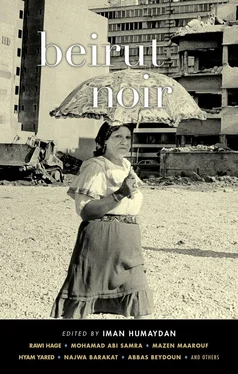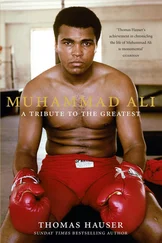My wife helped me, using a loofa saturated with soapy foam to reach its back. Her erect nipple approached the eye as though challenging it. Her breast touched the eye gently, perhaps it was tickling the nipple, and perhaps the eye woke and responded. But no. The eye can’t touch the breast — it is fully aware and cognizant of the fact that it isn’t a hand, mouth, or tongue. My wife was angry at the eye and pushed it under the water, leaving it there for a few seconds. The eye thought that its moment of salvation had finally arrived and rejoiced. My wife pushed the eye with her foot after she herself entered the bathwater naked and stretched it out onto its back. The eye relished the feel of her soft skin, but didn’t blink. Her warm belly moved, rising and falling, coming and going, with soap bubbles tickling, breathless and quivering.
The phone rang and my wife picked it up, saying fuzzy words into it, including shoes and four o’clock and useless appointments and something about the importance or the disease of forgetfulness. Meanwhile, the eye submissively waited naked on the towel atop the cold tiles. My wife stopped talking, hung up the phone, and noticed that I’d turned blue, so she held me up to rub me, dry me off, and put on my underclothes while humming a tune, expressing her tender mood of joy. She took me up to the bedroom, swaddled me in my clothes, and asked me if I’d enjoy stretching out on the bed. The eye answered, “No,” so she returned me to my throne on the red sofa.
Our neighbor was standing on the balcony. His face was twitchy as he gazed at our balcony and from there to the street. My wife went out onto the balcony but didn’t raise her glance at him. There was something different in her gait and posture. She picked up the hose and watered the potted plants. She watered them the day before too, the eye thought. Their roots will be worn out if she keeps on like this. Had she perhaps forgotten? Or was something disturbing her and preoccupying her mind? What a question. How could she not be preoccupied when she was feeling the loss of her husband who she loved, cared for, and was devoted to?
Certain words, images, and ideas are mixed up for me, as if I’ve come across them at the very moment they are changing or taking shape. I can discern only one specific detail without an essence from a voice, color, or form. It’s as if a giant hand cast a veneer of whiteness over the world with barely recognizable things looming behind its tiny holes.
Therefore I feel I should name and enumerate. Anything. Everything. What falls within my range of vision and what I guess or imagine in its surroundings. And I can make a list: leaves, clouds, footsteps, cubed tiles, birds — individually and in flocks — jets of rain, electricity wires, yellow chrysanthemums, the people living in the little screen, curtain rings, electric switches, passersby, lines, spots, dots, cars, electricity poles, voices, potted plants, colors... everything. Anything.
I list them so I don’t forget, so I don’t grow too distant from a world whose mayhem still reaches me and whose chaos still confuses me. I still have to reside here, even if only for a while. I rely on my exercises to pass time, chewing on a language as if I’d never learned it, as if it had suckled me, turned on me like a serpent, to bite off words whose taste had died long ago and whose return continues to hover within my range, like the whispering of water. Capturing the wind. A memory that wobbles on the edge of the tongue. A city hidden by sand where a fragment of a vase finally revealed a thread linking it to the urban fabric. I am the specter of a language swaddled by the wind.
I hear: “ Alif, ba, ta, tha’ ” (“A, B, C, D”)... I see letters themselves repeating. I see them passing against a black background, like train carriages, hand in hand, and I wait patiently for one letter after another to cross my optical screen. But only emptiness, silence, and silly letters start forming themselves again in combinations not organized by meaning or name. Thus passed “the years of my absence,” as my wife liked to call the period when I was away from her. The expression makes me laugh and I pity her when I remember her saying it, her tongue faltering breathlessly, scared someone might clarify it or a rude guest might correct her.
During “the years of my absence,” I used to sit in the darkness of my soul and count. Counting relaxed me and it still does. It circulates through me like drugs. Numbers penetrate deeply, then begin to bubble up from inside like soap. They bubble up, ossify, and increase until they fill me, scraping the sticky viscous muck and everything that hurts, disturbs, and sickens. Places with no light, sound, or breeze whatsoever help me concentrate. I don’t complain about staying in places that can barely accommodate my feet if I stretch them out. I can stay squashed up on top of myself, eye closed, absorbed in numbers until passing out, not sleeping, after which I start trying to keep track of how long I was out.
When they took me out of the “hole,” as they called it, I kept cheating, starting fights, and quibbling until I gave them an excuse to put me back there, my bloody body swollen with bruises and cuts. Neither severe beatings nor humiliation, nor other types of physical pain made me cry. Only my memory, my anguish, and my regret for what I thought was love and kindness, but at the end of the day was worse than evil.
My brother — he had no name except “my brother,” since he only answered when I called him that — didn’t like names. One sound sufficed for him, as in when he chose only one letter from my name — Kaf — and started calling me that, stretching it out, as he did when he started calling my parents “Maaaaaa” and “Paaaaaaaa.” They forced him to count and, unlike me, counting tasted like a kind of torture to him. Addition and subtraction required him to use his fingers and other things. That was until I found him the solution in an imaginary bag, which we sketched out together in his mind, into which he put every number that he had previously kept in his hand, waiting to complete the computation process.
He’d scream “Kaaaa!” then bang his head against the ground if he didn’t find me next to him. When I’d come, he’d gurgle like a fountain, hugging the tree as he would a human — living beings and inanimate objects weren’t different to him. My mother’s female relatives said, “God bless the Creator of two brothers who don’t resemble each other at all — either in looks or temperament. Praise be to Him, the one who beats you with one hand and supports you with the other”... I started thinking about the one they called “Praise be to Him.” The one who supported my mother when she was giving birth to me and beat her when she gave birth to my brother, as he fell from her belly onto the ground and hit his head on the tiles, rolling onto his face, his eyes shrunken, his limbs diminished. Fearing this “Praise be to Him” would direct another blow at him, perhaps as revenge, my brother didn’t want to grow up as other children do.
Despite this, for some reason I don’t understand — and contrary to the comments of everyone who spun around in our orbit, including our parents — I started to feel we were twins: as if he were the night and I the day, he the white and I the black, he the letter and I the dot. I remained amazed and astonished, not understanding how people didn’t see the resemblance between us, to the point where I put all the blame for this on “Praise be to Him,” who confused people. He put a soul in me which had my brother’s body shape, and he instilled in my brother a soul that matched my own looks. So my soul lived as a stranger, having nowhere to settle down, in exile in a place it didn’t know, where it didn’t fit in, harboring a desire to leave and go where its twin was hidden, locked up in shackles and dirt.
Читать дальше












